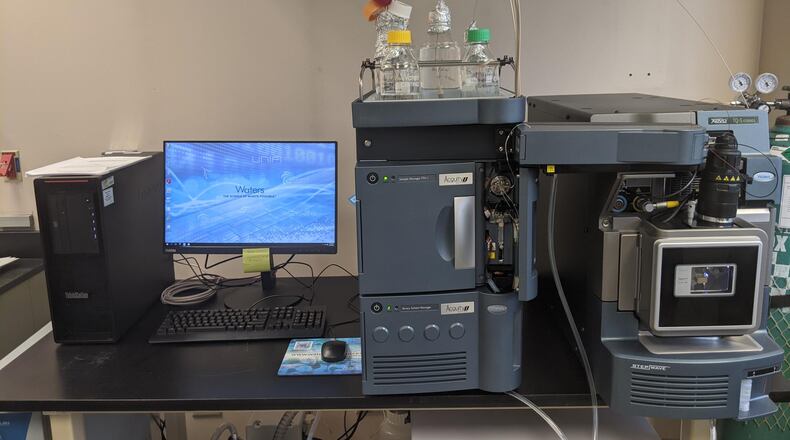The Dayton Daily News Path Forward project digs into solutions for the most pressing issues facing the community, including protecting the region’s drinking water that serves more than 400,000 people in the city and Montgomery County.
The water department ordered the spectrometry equipment at the beginning of the year and installed it in August. The device is widely used to determine PFAS in water because of its high sensitivity and specificity, according to published reports. Although the equipment can be used to test for other compounds, Dayton will use it primarily for PFAS analysis and monitoring, Kinney said.
Polyfluoroalkyl substances, known as PFAS, are perhaps the biggest threat to the region’s drinking water supply, local experts have said. Studies suggest that exposure to the chemicals might affect a woman’s chance of getting pregnant, increase cholesterol levels and cause some forms of cancer, according to the Centers for Disease Control and Prevention. More research is needed to better understand the health effects of PFAS exposure, the CDC says.
The city of Dayton has tested for PFAS regularly since low levels of the contaminants were found in a couple of its wells several years ago. Officials send water samples multiple times a year to outside laboratories at a cost of about $300-$400 each, totaling up to $100,000 annually, Kinney said, Currently, it takes up to six weeks to get results, but that time will be cut down to one week with the in-house system, Kinney said.
In an effort to save money and have a quick turnaround on samples, the city announced in February that it planned to remodel its water treatment lab, purchase the spectrometry equipment and test for PFAS.
“This remodel is a proactive measure to continue to protect the city’s drinking water supply,” Dayton Water Director Mike Powell said at the time.
Abinash Agrawal, a ground water and soil remediation expert at Wright State University, said operating the spectrometry equipment and analyzing the results is a rigorous protocol involving many steps by trained chemists. He has five of the devices in his lab at the university, and he trains PhD students on them.
Although the equipment has been installed, the city has to conduct tests and complete some administrative tasks, including training the operators, before it’s in use, Kinney said.
The city’s water quality lab currently contracts with other municipalities to conducts various tests and the like. So once the Ohio EPA certifies them to operate the LC-MS/MS, and “we’re confident that our results are reproducible and recordable, we’ll add that to our repertoire,” Kinney said.
About the Path Forward
Our team of investigative reporters digs into what you identified as pressing issues facing our community. The Path Forward project seeks solutions to these problems by investigating the safety and sustainability of our drinking water. Follow our work at DaytonDailyNews.com/PathForward or join one of our Facebook Groups.
About the Author
